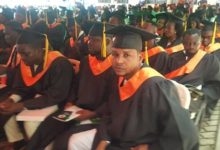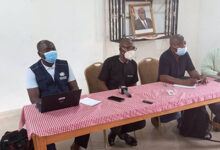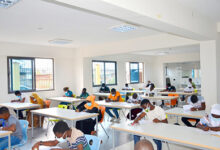
Dr Ayaga Bawah, senior lecturer at the Regional Institute for Population Studies (RIPS), has been selected to receive the prestigious Elsevier Atlas Award as the best article for the month of January 2019.
Elsevier is a world-leading provider of information solutions for science, health, and technology professionals.
In a statement to the recipient, Elsevier’s representative, Virginia V. Prada López, noted “Atlas articles showcase research that can (or already has) significantly impact(ed) people’s lives around the world and we hope that bringing wider attention to this research will go some way to ensuring its successful implementation.”
Dr Bawah’s article “Does the provision of community health services offset the effects of poverty and low maternal educational attainment on childhood mortality? An analysis of the equity effect of the Navrongo experiment in Northern Ghana” was published in the journal SSM – Population Health and was selected from thousands of recently published articles to be awarded the Elsevier Atlas.
The paper showed scientifically that the community-based health planning and services programme (CHPS) which was originally piloted and tested in Navrongo, does not only provide health benefits but also serves as a poverty alleviation programme.
This is because it takes services to people in rural communities who would otherwise be disadvantaged on account of poverty and social isolation. In effect, it does bridge the inequity gap.
Each month a single Atlas article is selected from published research from across Elsevier’s 3,800 journals hosted at Science Direct, by an external advisory board made up of individuals from NGOs among several others.
Dr Ayaga Bawah is a demographer who had previously served on the faculty at Columbia University in the city of New York, the INDEPTH Network in Accra where he served as Director for Research and the Navrongo Health Research Centre in Northern Ghana where he started his research career.
This work was jointly co-authored with collaborators from the Navrongo Health Research Centre and Columbia University
– www.ug.edu.gh





